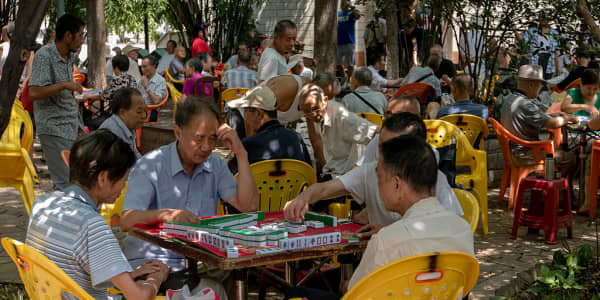The high-profile COP21 climate talks in Paris has put a fresh focus on green energy, governments, businesses and individuals reflecting the consumption of finite resources. If you're Bill Gates, this means you can drop $2 billion on incentivizing the 1 Percent to invest in clean energy. But if you're a regular person, what can you do? It turns out, you can use this festive vacation season to play a part in caring for the environment.
First, though, don't panic. Eco-tourism doesn't mean enduring mosquito nets and cold showers in order to do your bit for the environment. High-end resorts and hotels have made big strides on sustainability. You can have your luxury and still feel good about your choices. Here's what to look for.
The International Union for the Conservation of Nature defines eco-tourism as, "Environmentally responsible travel to natural areas, in order to enjoy and appreciate nature (and accompanying cultural features, both past and present) that promote conservation, have a low visitor impact and provide for beneficially active socio-economic involvement of local peoples."
Being "eco" boils down to three basic parts.
First, conservation: conserving the ecology of a hotel or resort's location is a key element in eco-tourism.
For example, the marine life is a big draw card at El Nido Resort on Pangulasian Island in the Philippines and seeing the area's green sea turtles is usually top of visitors' wish lists. To ensure the environment is not upset by motorized vehicles, only low-impact water activities like snorkeling and kayaking are available to guests. In another example, Six Senses Qing Cheng Mountain in China runs a Tesla Model S electric car as its airport shuttle.
Another key element is sustainability. The design of a hotel has to consider the full lifecycle of the venue, from the up-front building requirements to future maintenance.

EarthCheck is one of the leading international benchmarking, certification and advisory groups for the travel and tourism industries. EarthCheck measures hotels' sustainability policies and environmental action plans on areas including greenhouse gas emissions, energy efficiency and ecosystem conservation.
EarthCheck argues that there's a return on investment for tourism businesses that implement eco-friendly policies. "Some tourism businesses generated almost $200,000 per annum in electricity savings over a seven-year period," EarthCheck said in a September statement.
The Langham Hotels and Resorts group was awarded its eighth Gold certification from EarthCheck, for its Hong Kong hotel last month. A major investment was made in 2013 to replacing the chiller system at its Eaton Hong Kong hotel with a more energy efficient water-cooled version, Carmen Ng, the sustainability manager at Langham Hospitality Group says.
"This resulted in an almost 20 percent reduction in the hotel's total electricity consumption in 2013 when compared to consumption in the previous year," she says.
Langham's Guangzhou, China, hotel recently installed 280 square meters of rooftop solar panels, which can heat 28 tons of water from 20°C to 55°C. "This initiative will save RMB 190,000 [almost $30,000] every year on energy consumption," Ng says.
Away from solar and wind power, the Hoshinoya Karuizawa hotel, located a few hours from Tokyo, in a valley below the active Mount Asama volcano, harnesses geothermal heat and hydroelectricity from mountain streams. This makes the hotel almost completely energy independent.
Sustainability is not just linked to the environment; benefiting local communities is the third important element of eco-tourism.
Banyan Tree Resorts has taken on an initiative called Stay For Good, where all guests who stay at one of their resorts can participate in sustainability projects ranging from tree planting to preparing meals for the local community.
And through its Green Imperative Fund, guests are billed $2 a night – which Banyan Tree matches – and micro-contributions are given to local social and environmental efforts.
"As we are entering the third year of this platform that celebrates our long-standing community and ecology-minded efforts, we look forward to the ever increasing participation and outcomes resulting from us being able to share our efforts with guests who are interested in sustainability," Michael Kwee, assistant vice president of the Banyan Tree Global Foundation, says.
It's not just boutique resorts that are making eco a drawcard.
Best Western Premier The Haven Ipoh is among Malaysia first properties to use 100 percent renewable energy from the wind and sun. In another example, Starwood Hotels' ITC Royal Gardenia in Bengaluru, India, built a remote wind farm, supplying more than enough renewable electricity for the hotel. Rainwater harvesting and greywater recycling systems are used for flushing toilets and to feed cooling towers, saving roughly 40 percent in water consumption.





